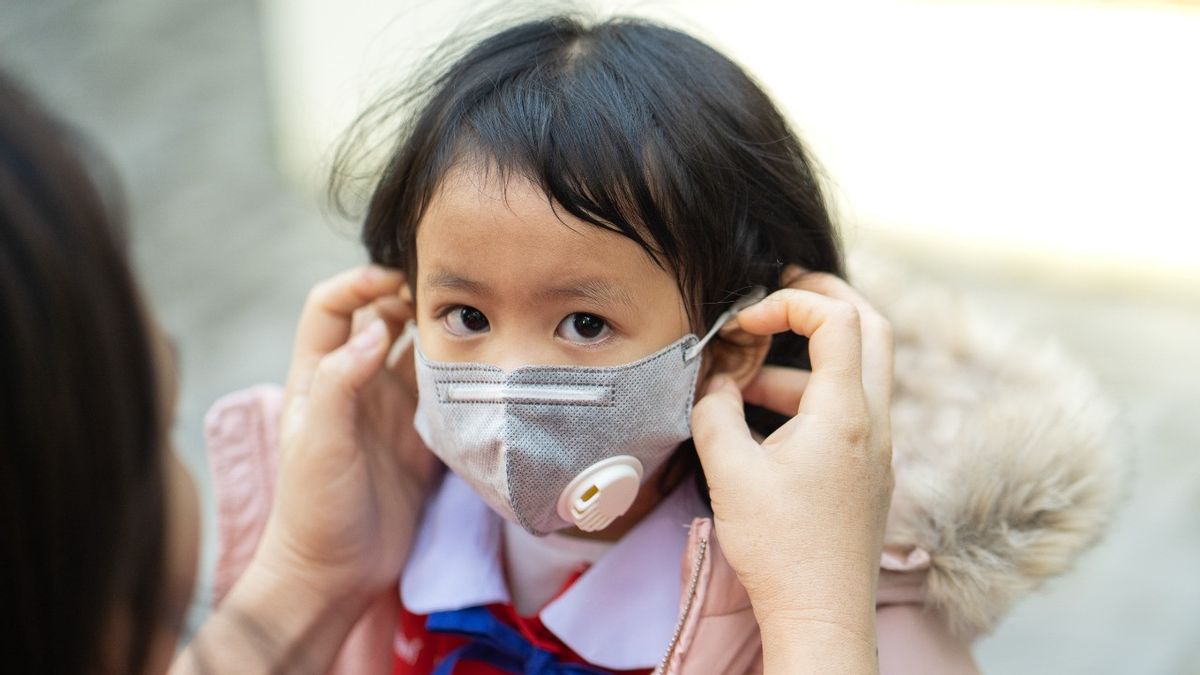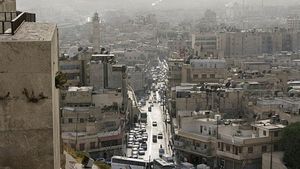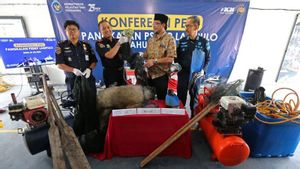JAKARTA - Based on data from the World Health Organization (WHO), 9 out of 10 people breathe polluted air, and an estimated 7 million people die each year due to air pollution. In addition, various studies also estimate that there is a relationship between air pollution and respiratory allergies, and infections in children.
These three factors have the potential to cause chronic inflammation that is out of control in the respiratory tract so that it has a negative impact on the respiratory system's physiology. Allergies and respiratory infections caused by air pollution are currently still a global health problem, including in Indonesia. The impact of air pollution not only threatens adults, but also is very dangerous for the health of children. The Institute for Health Metrics and Evaluation estimates that in 2019, 28.14 deaths per 100,000 children's population in Indonesia associated with exposure to air pollutants, making it the third largest risk factor for mortality and morbidity in children under 5 years. A recent study entitled The Notorious Triumvirate in Pediatric Health: Air Pollution, Respiratory Allergy, and Infection has shown about the vulnerability of children to face health problems caused by air pollution such as allergies. Because allergies occur as a form of immune system reactions to other substances that are considered dangerous even though they are not.
Air pollution triggers pro-inflammatory cytokines that can exacerbate inflammation of allergies in the respiratory tract. According to the study, balance and variation of gut microbiots need to be maintained to reduce the adverse impact of air pollution on children. This is because gut microbiota have an important role for children's health, such as supporting neural development, improving the balance of the body's immune system, reducing inflammation due to allergies, and metabolism in children. Researcher of The Notorious Triumvirate in Pediatric Health: Water Pollution, Respiratory Allergy, and Infection, Prof. Dr. dr. Anang Endaryanto, SpA(K), MARS said, children are more susceptible to air pollution. Physiologically, their body organs such as the brain and lungs are still in the growth stage.
According to him, this makes them more vulnerable to health problems due to air pollution. In an less clean environment, children will be more exposed to air pollution, especially because they are often outdoors.
"Although the direct influence of air pollution on respiratory allergies is still under research, the number of respiratory allergies and infections in children remains high in areas with high levels of pollution. This is due to air pollution that triggers an inflammatory reaction that exacerbates respiratory allergies," he said, quoted on Saturday, September 16. Another recent study entitled The Impact of Water Pollution on Gut Microbiota and Childrens Health: An Expert Consensus shows that air pollution can directly affect children's health through three pathways, namely the pathways of neuro, immune, and cardiomethabolic development. This can happen because ingested air pollutants can cause disbiosis or imbalance in the gut microbiota, thereby triggering an immune system response that causes allergic reactions to children.
Air pollutant particles can affect epitel cells that are intestinal protective layers, both directly and after being absorbed by the intestinal microbiota. Both processes can cause the weakening of the intestinal protective layer. This allows bacterial germs and pollutants from the air to penetrate deeper into the intestinal wall layer. As a result, more active interactions among immune cells and trigger inflammation, thus changing the composition of the gut microbiota to better match changes in the digestive environment.As one of the researchers in the study The Notorious Triumvirate in Pediatric Health: Air Pollution, Respiratory Allergy, and Infection, and also as Medical & Scientific Affairs Director of Danone Specialized Nutrition Indonesia, Dr. dr. Ray Wagiu Basrowi, MKK., said, as many as 68 percent of allergic diseases at adult age can be predicted since childhood because genetic records are difficult to correct. However, children do not yet have air pollution defenses, so the role of the elderly is very important in protecting them.
SEE ALSO:
Disorders in the balance of the gut microbiota in children can trigger an immune system response that causes allergies, especially due to air pollution. Therefore, experts recommend intervention to maintain children's health in the midst of pollution, such as providing nutritious foods that contain probiotics and prebiotics for children's digestive health that can support their immune system.
"Probiotics and prebiotics are one of the food intakes that can support the development and balance of microbiota to improve body health. Probiotics and prebiotics function to support the balance of children's gut microbiota and help restore good bacteria that are disrupted by the impact of air pollution," he explained. In dealing with this air pollution situation, it is time for parents in Indonesia to be more aware of the importance of maintaining their child's health, starting from paying attention to the impact of air pollution on children and how to prevent it.
"Parents in Indonesia need to be more aware of the importance of protecting their children's health from air pollution and taking appropriate preventive measures. Children have not been able to protect themselves from the threat of pollution in the vicinity. So, parents who need to take preventive measures, one of which is ensuring nutritional intake that can support the child's immune system, so that they can stay healthy and grow to the maximum being children of the advanced generation," concluded dr. Ray.
The English, Chinese, Japanese, Arabic, and French versions are automatically generated by the AI. So there may still be inaccuracies in translating, please always see Indonesian as our main language. (system supported by DigitalSiber.id)
















